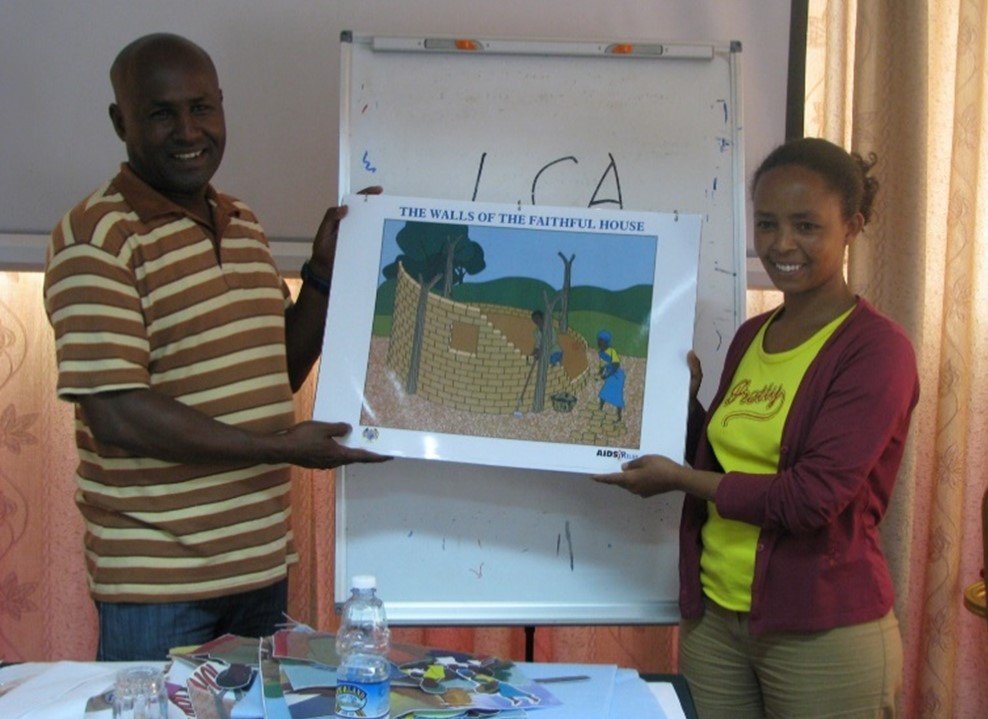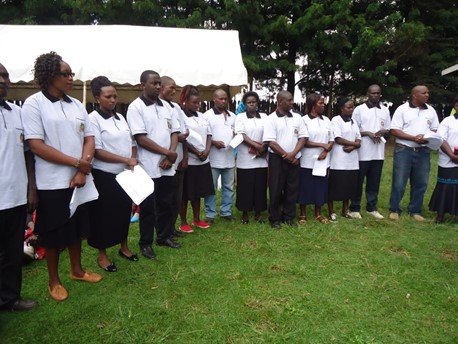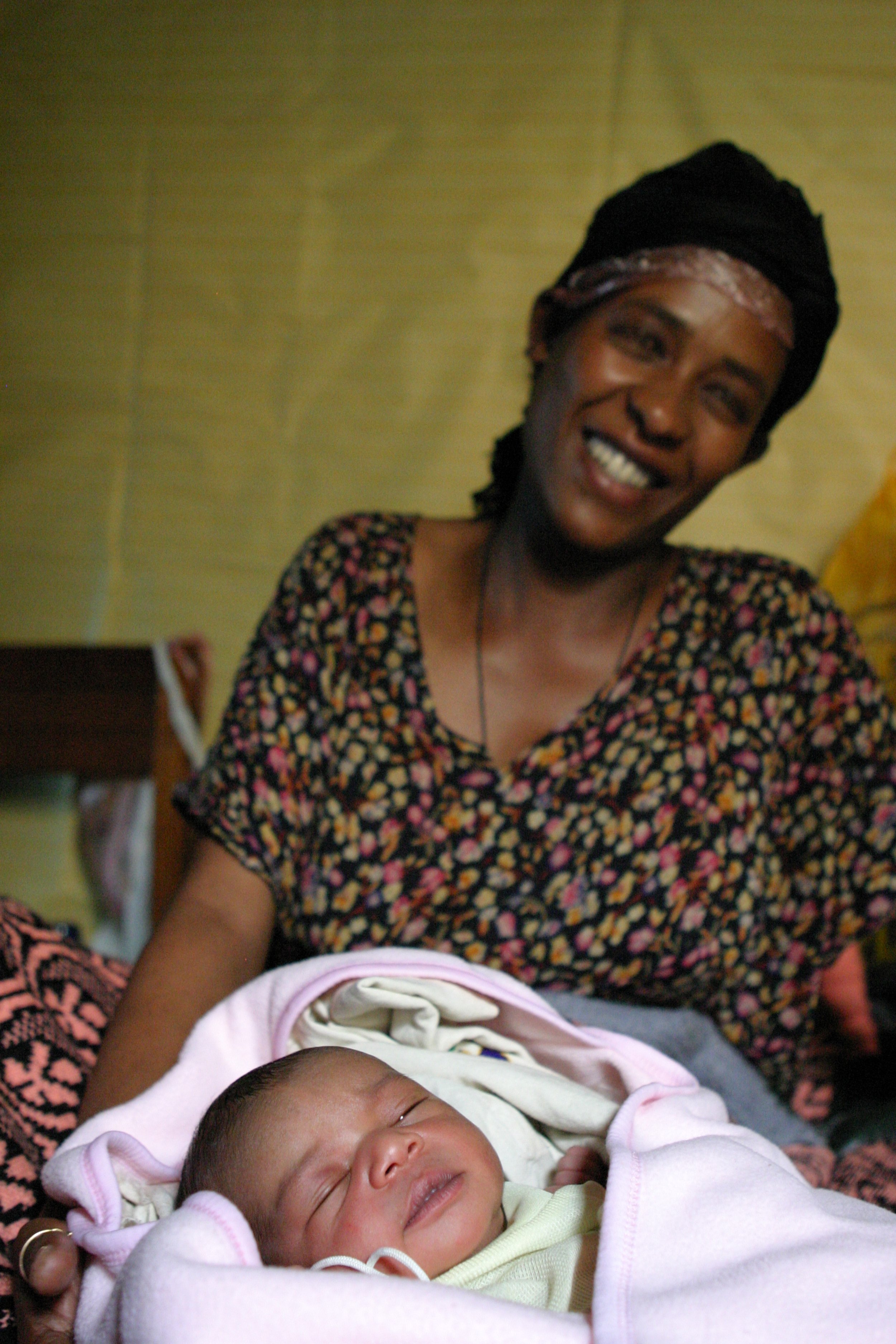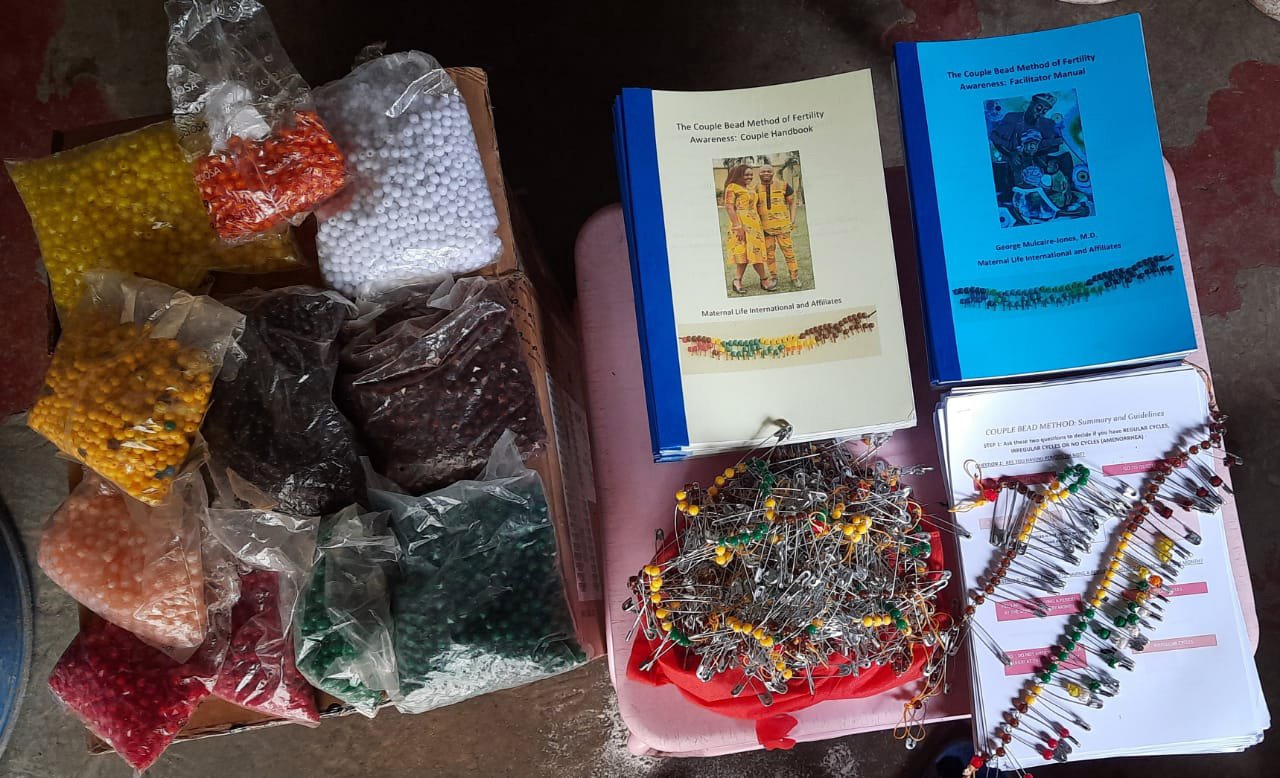
THE HISTORY OF MATERNAL LIFE INTERNATIONAL
“A pregnant woman has one foot in the grave”
Maternal Life International was started in 1997 by Dr. George Mulcaire-Jones, a physician trained in family medicine and obstetrics. After finishing his residency he and his wife Mary joined Mission Doctors Association of the Archdiocese of Los Angeles and worked for two years at Shisong Hospital in Cameroon. There, he encountered maternal deaths, an experience that haunts him to this day.
I will never forget the first time I saw a woman die in childbirth. I was called near midnight to the labor ward to see a pregnant woman who was comatose. She had been brought in from a distant village after multiple seizures. When I arrived, the woman did not respond to pain or touch. Her blood pressure was 170 over 112, her face and legs were swollen, her fully pregnant abdomen was silent. She was brain dead from unrecognized and untreated toxemia – the baby inside her was also dead. At that point nothing could be done and after a couple hours she quit breathing, expired and the wailing of her family began.
Her death is reflected in a proverb from 17th century France that is still used in Africa today, “A pregnant woman has one foot in the grave.”
Indeed one foot is in the grave for mothers throughout Africa who are at risk from death from hypertensive diseases, hemorrhage, obstructed labor, untreated maternal illness and overwhelming infections. Without skilled birth attendance, the lifetime risk of a woman dying from complications of childbirth in Africa can be as high as 1 in 16 compared to 1 in 7500 in the United States.
After George and Mary returned to the U.S., they continued to correspond with the colleagues with whom they had worked with in Cameroon. After hearing of more maternal deaths, they felt they could not just sit back and do nothing and formed a non-profit organization in 1997 called MaterCare International USA, led by a Canadian obstetrician gynecologist, Dr. Robert Walley. They later formed an independent organization, Maternal Life International (MLI).
Maternal Life developed the “Safe Passages” training program to improve maternal and newborn care. In the first Safe Passages trainings in 2003, we trained over five hundred obstetrical providers in Nigeria. Safe Passages training continued and was offered in Sierra Leone as well as in multiple sites in Nigeria. In 2015, Safe Passages training was introduced in Uganda, and included ultrasound training for midwives as well as focused training on postpartum hemorrhage and newborn resuscitation.
AIDS and Maternal Life’s Response
The AIDs epidemic in Africa had a profound effect on MLI’s programming. We saw vast numbers of people were dying of AIDS and we expanded our focus to HIV prevention and care. MLI’s first direct HIV care program was in Swaziland, a country with one of the highest HIV rates in Africa. There, MLI developed the first ever parish nurse training for HIV care in Africa. Nurses throughout Swaziland were recruited and trained from churches. After training, they ministered to sick and dying AIDS patients and their families, removing fear, shame, and stigma. The program expanded in Swaziland and then was developed and used in South Africa and became a great model for faith-health partnerships.
“I can only thank God for these nurses. They were like angels. They came to help the most sick and desperate . . . they gave patients medicines, understanding, prayers, comfort and helped families cope with this terrible disease. . . One of the nurses told me why she did this work, saying, no human being should die alone, unknown and unloved. ”
As the HIV epidemic unfolded, a disturbing reality emerged: HIV was overwhelming the resources and social infrastructure of many African countries. Each day it was estimated that 9000 people were dying of AIDS in Africa. Yet, at the same time, there were 14,000 new HIV infections being contracted each day.
At this time, nearly 50% of new HIV infections occurred in marriage and MLI was asked to work on a program to reduce HIV transmission in married couples. Through a collaborative effort with Catholic Relief Services, we developed a very successful training model known as “The Faithful House.” We conducted initial pilot trainings in 2005 in Uganda, Rwanda and Ethiopia and the program continues to be used to this day in multiple African countries and Haiti.
As our experience with “The Faithful House” grew, we saw in it the importance of “Couple-Centered Development” and this couple centered approach became foundational to the development of our other programs.






The 1st Thousand Days of Life
Beginning in 2013 in Liberia and then in 2015 in Uganda, MLI developed and piloted a couple-centered program for education and support for a healthy 1st Thousand Days of Life. The program is now known as the “A Journey of a Thousand Days” and is being added to the training menu in Rwanda, Uganda, Kenya and Tanzania.
The 1000 days comes from adding three numbers:
270 days is the average length of human gestation, from conception to birth.
The first 365 days is the number of days from a child’s birth to his or her first birthday.
The second 365 days is the number of days from a child’s first birthday to his or her second birthday.
270 + 365 + 365 = 1000 Days!
The first 1000 days of life are the most critical time of human development. During this time, a child’s brain is developing most rapidly, setting up vital circuits within the brain and with other organ systems. A healthy first 1000 days establishes a solid platform for a child’s physical, mental, and relational health for the rest of their life! Yet, the opposite also holds true: maternal malnutrition, unrecognized maternal illness, birth difficulties, poor breast feeding, inadequate infant nutrition and repetitive childhood illnesses may compromise the 1000 days of life and in so doing, the rest of the child’s life.
A particular focus of the 1st Thousand Days of Life is the prevention of stunting. A stunted child is one whose “height for age” is less than two standard deviations of the World Health Organization Growth Standards median. With stunting, a child’s neurological and immunological development is also impaired. Stunting can be traced back to a constellation of factors that occur within the 1st 1000 days of life.
The Couple Bead Method (CBM) of Natural Family Planning and Fertility Awareness
As a part of our history, MLI has developed and implemented natural family planning/fertility awareness programs – beginning in Nigeria in 2003. In 2009, MLI’s simplified method of NFP was patented as the “Bead Method of Natural Family Planning.” (Mulcaire-Jones, George. 2009. Patent US7588544 - Apparatus and method of fertility awareness. Google Patents. September 15. http://www.google.com/patents/US7588544).
With further experience and refinements, the bead method was finalized as “The Couple Bead Method of Fertility Awareness.” The Couple Bead Method is now taught through MLI’s affiliates in Uganda, Tanzania, Kenya, Haiti as well as in Nigeria.
The Couple Bead Method is an integral part of “couple-centered development” and like “The Faithful House” and “1st Thousand Days of Life”, promotes unity amongst husband and wives and shared responsibility for the well-being of the family.










